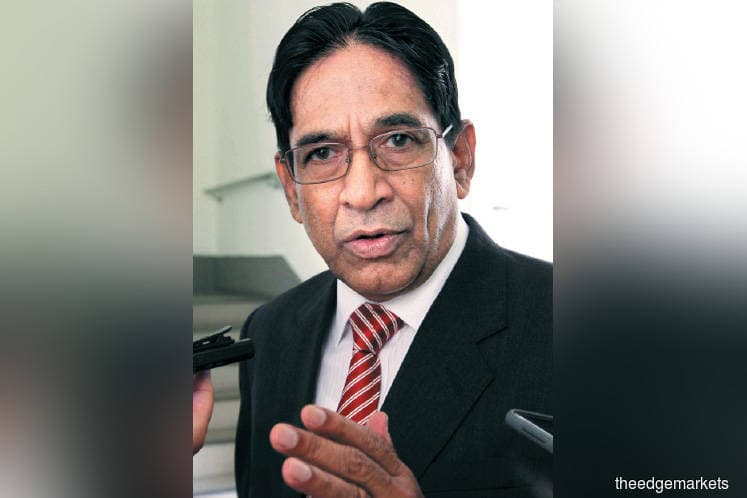
This article first appeared in The Edge Financial Daily on August 2, 2018
KUALA LUMPUR: Regional health authorities should be set up to focus on serving people within their respective areas, says former health director-general (DG) Tan Sri Dr Mohd Ismail Merican.
This would reduce unnecessary travel between hospitals in different states and make healthcare delivery more efficient, Mohd Ismail said.
“This is something I have been thinking about for the past 15 years ... restructuring the ministry of health (MoH) and creating regional health authorities,” he said in his speech on healthcare reforms at the inaugural Galen Centre Distinguished Speaker Series yesterday.
However, this should only be done after specific healthcare reforms have taken place, such as to establish a national healthcare financing authority and improving the quality of hospital services, he said at the event organised by the Galen Centre for Health and Social Policy.
On the possible implementation of voluntary health insurance, Mohd Ismail suggested it should instead be mandatory.
“If you want to have insurance, it should not be voluntary. You should just grit your teeth and tell people to start paying a certain premium for healthcare [except those who can’t afford it]. The rates should be affordable,” said Mohd Ismail, who was health DG from 2005 to 2011.
“I have been trying to get some information on voluntary health insurance but they (officials) always say ‘it is work in progress’ and ‘not ready’. My feeling is there is not much stakeholder engagement.”
Currently Mahsa University’s pro-chancellor, Mohd Ismail believes Malaysia’s healthcare sector delivery, though it remains one of the best in the world, has plateaued over time, warranting specific reforms. He cited the need to strengthen primary healthcare delivery as well as better integrate public and private hospitals as additional reforms.
“I feel once we have introduced reforms, we need to consider restructuring the ministry of health and create the area health authorities (AHA) — autonomous healthcare delivery bodies that will take care of people in their respective regions.”
Mohd Ismail said the regional authorities would be guided by ministry policies, and allocated a certain amount of funding under an authority formed within the ministry based on a formula.
“It would be up to them to manage this fund responsibly without compromising or shortchanging the needs of the people they are responsible for.
“The AHA should also manage their own people, meaning if a person gets a heart attack in Penang, [he] should not go to the National Heart Institute (IJN). He should go to Penang Hospital or any related facility there (in the northern region), for example. Unless they cannot do the procedures required, then he can go to IJN. [Patients] should be managed at the cardiac centres within the authority.”
He added that AHA would also need to manage their own funds and raise money independently.
“Sometimes, you run out of cash. You cannot tell the national health authorities that you need more money. You must have your own initiative to raise funding and ensure that healthcare there is sustainable. If the AHA are not performing, then they should change their heads. Make sure they get candidates who can perform [well]. So you can manage the people better in the region, with better utilisation of resources in the public and private sectors.”
He proposed the creation of AHA in six regional areas — in the north, south, east and west of the peninsula as well as Sabah and Sarawak.
“What would the MoH do then? It would have a smaller role, an oversight role. It needs to be restructured, and will focus on bigger issues such as policy, standards, regulation, enforcement, public health, research, training and healthcare financing,” Mohd Ismail said.
On whether he had been in contact with the new government concerning his proposal, he said: “Not yet. I plan to see the new [health] minister soon.”